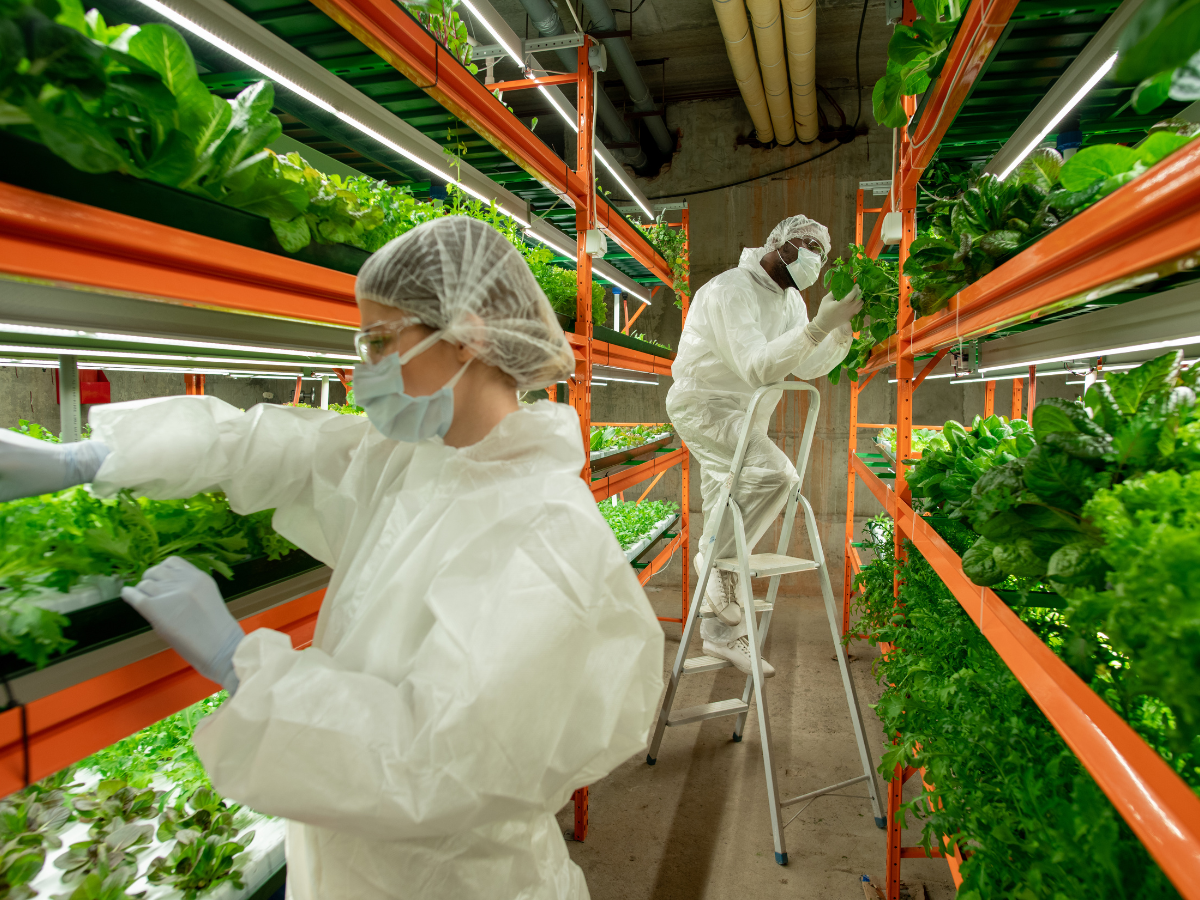The Future of Vertical Farming

Vertical farming is an innovative agricultural practice that involves growing crops in vertically stacked layers, often in controlled indoor environments. This method offers numerous benefits, including efficient use of space, reduced water consumption, and year-round crop production. As urbanization increases and arable land becomes scarcer, vertical farming presents a promising solution for sustainable food production. This blog explores the future of vertical farming, its advantages, challenges, and the potential for growth in the UK.
What is Vertical Farming?
Vertical farming involves cultivating plants in stacked layers or vertically inclined surfaces, using controlled-environment agriculture (CEA) technology. This can be done in various structures, such as buildings, shipping containers, or repurposed warehouses. The controlled environment allows for optimal growing conditions, including temperature, light, humidity, and nutrient supply, which can be precisely regulated.
Types of Vertical Farming Systems
- Hydroponics
- Hydroponics is a method of growing plants without soil, using nutrient-rich water solutions. Plants are supported by inert mediums like perlite or rock wool and receive nutrients directly through the water. This system is highly efficient in water use and can produce high yields.
- Aeroponics
- Aeroponics involves growing plants with their roots suspended in the air and misted with nutrient solutions. This method promotes faster growth and uses even less water than hydroponics. It also allows for better oxygenation of roots, enhancing plant health.
- Aquaponics
- Aquaponics combines hydroponics with aquaculture, where plants and fish are grown together in a symbiotic environment. Fish waste provides nutrients for the plants, and the plants help filter and clean the water, creating a sustainable ecosystem.
- Soil-Based Vertical Farms
- Some vertical farms use traditional soil or soil substitutes in stacked layers. These systems can benefit from natural processes and microbial activity in the soil, which can enhance plant growth and resilience.
Advantages of Vertical Farming
- Space Efficiency
- Vertical farming maximizes the use of space by growing crops in stacked layers. This is particularly beneficial in urban areas, where land is limited and expensive.
- Year-Round Production
- Controlled-environment agriculture allows for continuous, year-round crop production, unaffected by seasonal changes or adverse weather conditions. This ensures a consistent supply of fresh produce.
- Reduced Water Usage
- Vertical farming systems, especially hydroponics and aeroponics, use significantly less water compared to traditional farming. The closed-loop systems recycle water, minimizing waste and promoting sustainability.
- Lower Transportation Costs
- By locating vertical farms close to urban centers, the distance between the farm and the consumer is reduced. This lowers transportation costs, reduces carbon emissions, and ensures fresher produce.
- Pesticide-Free Farming
- The controlled environments of vertical farms are less susceptible to pests and diseases, reducing the need for chemical pesticides. This results in healthier, pesticide-free produce.
- Enhanced Crop Yields
- The precise control over growing conditions in vertical farms leads to optimized plant growth and higher yields. Multiple harvests per year are possible, further increasing productivity.
Challenges of Vertical Farming
- High Initial Costs
- Setting up a vertical farm involves significant initial investment in infrastructure, technology, and energy systems. However, the long-term savings in water, labor, and transportation costs can offset these expenses.
- Energy Consumption
- Vertical farms rely on artificial lighting and climate control systems, leading to high energy consumption. Utilizing renewable energy sources and improving energy efficiency can mitigate this challenge.
- Technical Expertise
- Operating a vertical farm requires specialized knowledge in controlled-environment agriculture, plant science, and technology. Providing training and support to farmers and technicians is essential.
- Economic Viability
- The economic viability of vertical farming depends on factors such as crop selection, market demand, and operational efficiency. Conducting thorough market research and developing effective business models are crucial for success.
Potential for Growth
The future of vertical farming in the UK looks promising, with several factors contributing to its potential for growth:
- Urbanization
- As urban populations grow, the demand for locally produced, fresh food increases. Vertical farming can meet this demand by providing urban centers with a sustainable and reliable food source.
- Technological Advancements
- Ongoing advancements in LED lighting, automation, and AI are enhancing the efficiency and scalability of vertical farming systems. These technologies will continue to drive innovation and reduce operational costs.
- Sustainability Goals
- The UK’s commitment to sustainability and reducing carbon emissions aligns with the principles of vertical farming. By promoting resource-efficient farming practices, vertical farming supports the UK’s environmental objectives.
- Policy Support
- Government policies and incentives that promote sustainable agriculture and technological innovation can further accelerate the adoption of vertical farming. Supportive policies can help overcome financial and regulatory barriers.
Conclusion
Vertical farming represents the future of sustainable agriculture, offering a solution to the challenges of urbanization, resource scarcity, and climate change. By maximizing space efficiency, reducing water usage, and enabling year-round production, vertical farming can revolutionize food production in the UK. While challenges such as high initial costs and energy consumption exist, ongoing technological advancements and supportive policies will drive the growth of vertical farming. As the UK continues to embrace this innovative approach, vertical farming will play a crucial role in creating a resilient, sustainable, and secure food system for the future.






